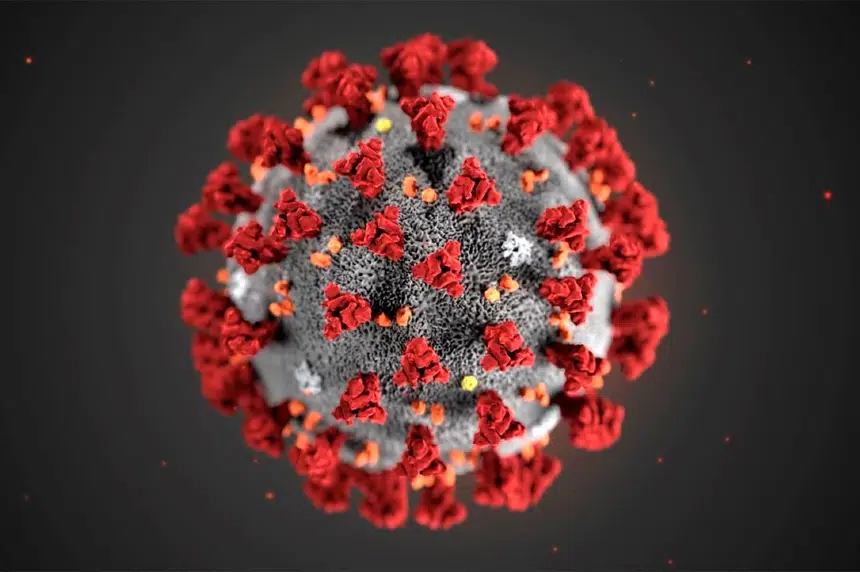As all of Saskatchewan adjusts to life in the COVID-19 global pandemic, some in the smaller, tight-knit communities have concerns as the virus continues to spread.
650 CKOM spoke to three mayors in the north-central district to talk about what they’re struggling with as COVID-19 cases, and deaths, continue to grow in the province.
Prince Albert’s mayor, Greg Dionne, has held his current title for the past eight years. He said their biggest struggle thus far is travel, being the “gateway to the north.”
“We are the service and health (centre) for northern Saskatchewan. We have lots of people from the north come to Prince Albert to get their supplies,” he said.
“There is a degree of some people coming from more remote communities that don’t know too much about COVID-19, or don’t know the full extent of it.”
Dionne said in conversations he’s had with some travellers to the Prince Albert area, their main concern is being so isolated up north. Whether it be a lack of health centres or a lack of testing centres designated for COVID-19, Dionne stressed the need for resources such as the 811 health line.
“You know we (are) in this together and that’s the important thing to know,” he said.
“If you’re having symptoms don’t go to a doctor, (or) come to the city. Call 811, they’re very good at analyzing on the phone whether you need a test or not… if you are feeling not well, go in your house (and) stay in your house.”
Just over 200 kilometres west of Prince Albert, those in the Battlefords are also concerned with the threat of COVID-19.
A 75-year-old woman, who lived near the Battlefords, was one of the first two deaths in the province linked to COVID-19, and a lack of clarity as to where they fall within the Saskatchewan Health Authority’s (SHA) districts continues to be an issue in the area.
“It kind of seems like we’re right on the bubble of whether we’re considered the north, or the central. So, it definitely spurs conversations in the community,” Town of Battleford Mayor Ames Leslie said.
Earlier this week, the SHA changed some of its boundaries, including districts such as the ‘far north.’ The district includes former boundaries of the Athabasca Health Authority, Keewatin Yatthe Health Region and Mamawetan Churchill River Health Authority.
The ‘north’ district includes former boundaries of the Prairie North Health Region, Prince Albert Parkland Health Region and Kelsey Trail Health Regions. The Battlefords and Prince Albert fall in the ‘north’ district.
North Battleford Mayor Ryan Bater said the change was not relayed “explicitly” to the municipal level by the SHA.
“There was a bit of confusion in the community. Just when we hear the statistics, of course, they’re naming Saskatoon (and) Regina, and then the rest of the province is lumped into (separate) regions.”
Bater said regardless of boundaries, his council is focusing on a different approach.
“We have maintained since this started that everybody needs to behave as if it’s already in your community. In fact, you should behave as if you have the virus yourself, and you don’t want to spread it. So do not come in contact with anybody if you can possibly help it.”
Bater said North Battleford started preparing for a situation of this nature in February. He added that they continue to watch the daily updates from the SHA to ensure they are doing the best they can to mitigate the spread of COVID-19.
On the other side of the river, Mayor Leslie said that communication is a barrier when it comes to the provincial government and smaller Saskatchewan communities.
“Even though we are one of the largest towns in the province, it seems like the flow of communication from government relations and Sask. Health are probably the biggest hurdles we’re struggling with, as to plans if there is a full-scale pandemic,” he said.
“We feel kind of left in the dark.”
As of Tuesday, Saskatchewan has 184 reported cases of COVID-19. Two of three cases in the ‘far north’ have recovered, while nine of 37 cases in the ‘north’ district have now recovered.
In the ‘central’ district, which excludes Saskatoon, 90 cases of COVID-19 have been confirmed, with three cases deemed recovered.







